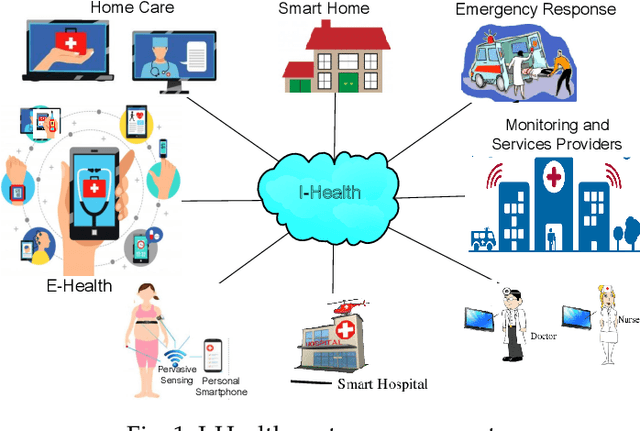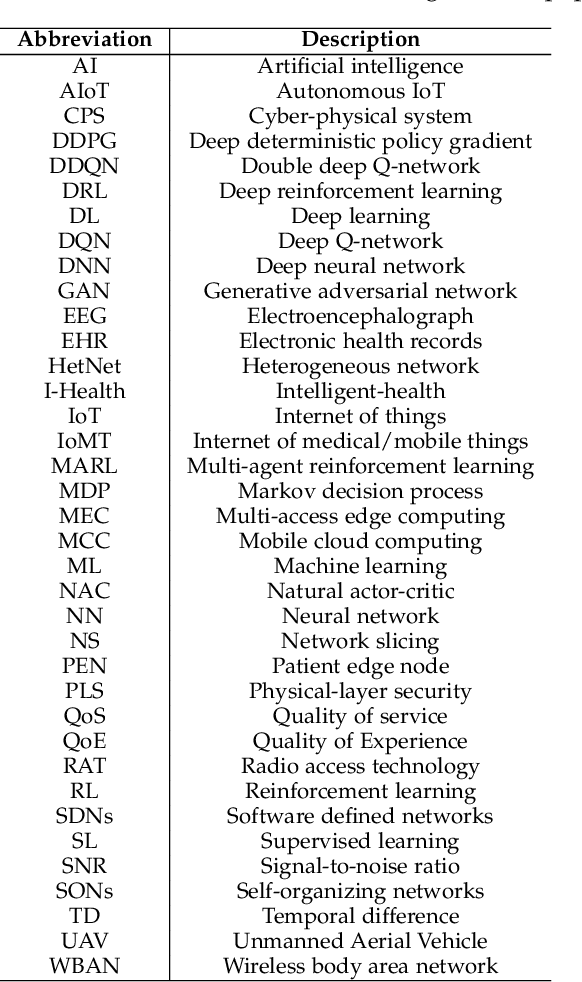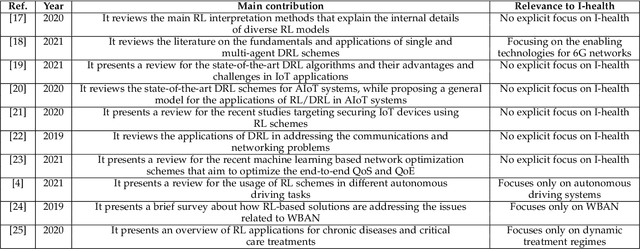Zina Chkirbene
A Comprehensive Survey On Client Selections in Federated Learning
Nov 12, 2023Abstract:Federated Learning (FL) is a rapidly growing field in machine learning that allows data to be trained across multiple decentralized devices. The selection of clients to participate in the training process is a critical factor for the performance of the overall system. In this survey, we provide a comprehensive overview of the state-of-the-art client selection techniques in FL, including their strengths and limitations, as well as the challenges and open issues that need to be addressed. We cover conventional selection techniques such as random selection where all or partial random of clients is used for the trained. We also cover performance-aware selections and as well as resource-aware selections for resource-constrained networks and heterogeneous networks. We also discuss the usage of client selection in model security enhancement. Lastly, we discuss open issues and challenges related to clients selection in dynamic constrained, and heterogeneous networks.
Reinforcement Learning for Intelligent Healthcare Systems: A Comprehensive Survey
Aug 05, 2021



Abstract:The rapid increase in the percentage of chronic disease patients along with the recent pandemic pose immediate threats on healthcare expenditure and elevate causes of death. This calls for transforming healthcare systems away from one-on-one patient treatment into intelligent health systems, to improve services, access and scalability, while reducing costs. Reinforcement Learning (RL) has witnessed an intrinsic breakthrough in solving a variety of complex problems for diverse applications and services. Thus, we conduct in this paper a comprehensive survey of the recent models and techniques of RL that have been developed/used for supporting Intelligent-healthcare (I-health) systems. This paper can guide the readers to deeply understand the state-of-the-art regarding the use of RL in the context of I-health. Specifically, we first present an overview for the I-health systems challenges, architecture, and how RL can benefit these systems. We then review the background and mathematical modeling of different RL, Deep RL (DRL), and multi-agent RL models. After that, we provide a deep literature review for the applications of RL in I-health systems. In particular, three main areas have been tackled, i.e., edge intelligence, smart core network, and dynamic treatment regimes. Finally, we highlight emerging challenges and outline future research directions in driving the future success of RL in I-health systems, which opens the door for exploring some interesting and unsolved problems.
 Add to Chrome
Add to Chrome Add to Firefox
Add to Firefox Add to Edge
Add to Edge